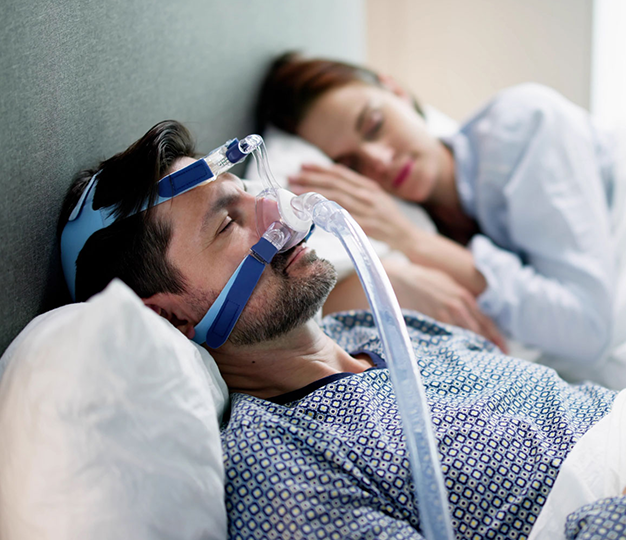
What is Sleep Apnea?
Simply put, sleep apnea occurs when breathing repeatedly pauses during sleep. Each pause causes the brain to partially wake the body to resume breathing. These interruptions can happen numerous times in one night, preventing restful sleep.
The most common type is obstructive sleep apnea (OSA), which occurs when the airway is blocked by relaxed soft tissues in the mouth or throat. Central sleep apnea (CSA) happens when the brain fails to send signals to control breathing during sleep. There is also a third type, complex sleep apnea, which combines elements of both OSA and CSA.
Common Symptoms of Sleep Apnea
- Loud, chronic snoring
- Excessive daytime drowsiness
- Waking up gasping for air or out of breath
- Frequent morning headaches, sore throat, or dry mouth
- Trouble concentrating or remembering things
- Mood swings or depression
- Persistent weight gain/trouble losing weight
- Sexual dysfunction
Sleep Apnea & Snoring
The Dangers of Sleep Apnea
When sleep apnea isn’t addressed, it can lead to:
- Feeling chronically fatigued and exhausted during the day
- An increased risk of heart problems like high blood pressure, high cholesterol and stroke
- Weight gain
- Trouble with memory and paying attention
- Depression or irritability
- Dozing off while driving and increased risk of Road-Traffic Accidents
If you suspect you have sleep apnea, it is crucial to seek treatment promptly. Delaying treatment can lead to worsening consequences. We urge you to contact our office without delay when you notice any symptoms associated with sleep apnea.
Sleep Apnea Treatment Options
Oral Appliance Therapy
Combined Therapy
Oral Appliance Therapy Vs CPAP Therapy
While CPAP therapy is widely acknowledged as the most effective treatment for sleep apnea, it's unfortunate that as many as half of CPAP machine users don't use them regularly. Often, this is due to the disruptive noise emitted by the machine, which can disturb both patients and those nearby trying to sleep. Additionally, many individuals find the masks used in CPAP therapy highly uncomfortable.
In contrast, oral appliance therapy offers a quieter and more comfortable alternative. These appliances are customized to fit the patient's unique smile, resulting in reduced discomfort. If you struggle with CPAP therapy, we encourage you to reach out to our office to explore the possibility of oral appliance therapy as a viable alternative.
Is Oral Appliance Therapy Covered by Insurance?
Interesting Sleep Apnea Facts
- Generally, sleep doctors believe that average healthy adults should only need about 7-9 hours of sleep each night to feel well rested during the day.
- Sleep apnea can make it mor difficult to lose weight as well as keep it off
- Chronic sleep deprivation can cause memory problems because it prevents the brain from being able to properly organize information at the end of the day.
- Many people who suffer from sleep apnea mistakenly believe they are insomnics because the breathing cessations cause them to wake often.
- Snoring is one of the most common signs of sleep apnea, but not all people who snore have the condition. However, those who do consistently snore are most liekly to develop a sleep disorder in the future.
- It has been shown in multiple studies that driving while drowsy is more dangerous than driving while drunk.
- Up to 80% of all people with sleep apnea are either undiagnosed or misdiagnosed.
- If you frequently wake up in the middle of the night to go to the bathroom, it could be a sign of sleep apnea. Many apnea patients are unaware that they are being woken up by a stoppage in breathing.
- Nighttime teeth grinding, AKA bruxism, may also indicate sleep apnea as well.
- A larger-than-average neck or tongue can also cause a person to have sleep apnea symptoms.

